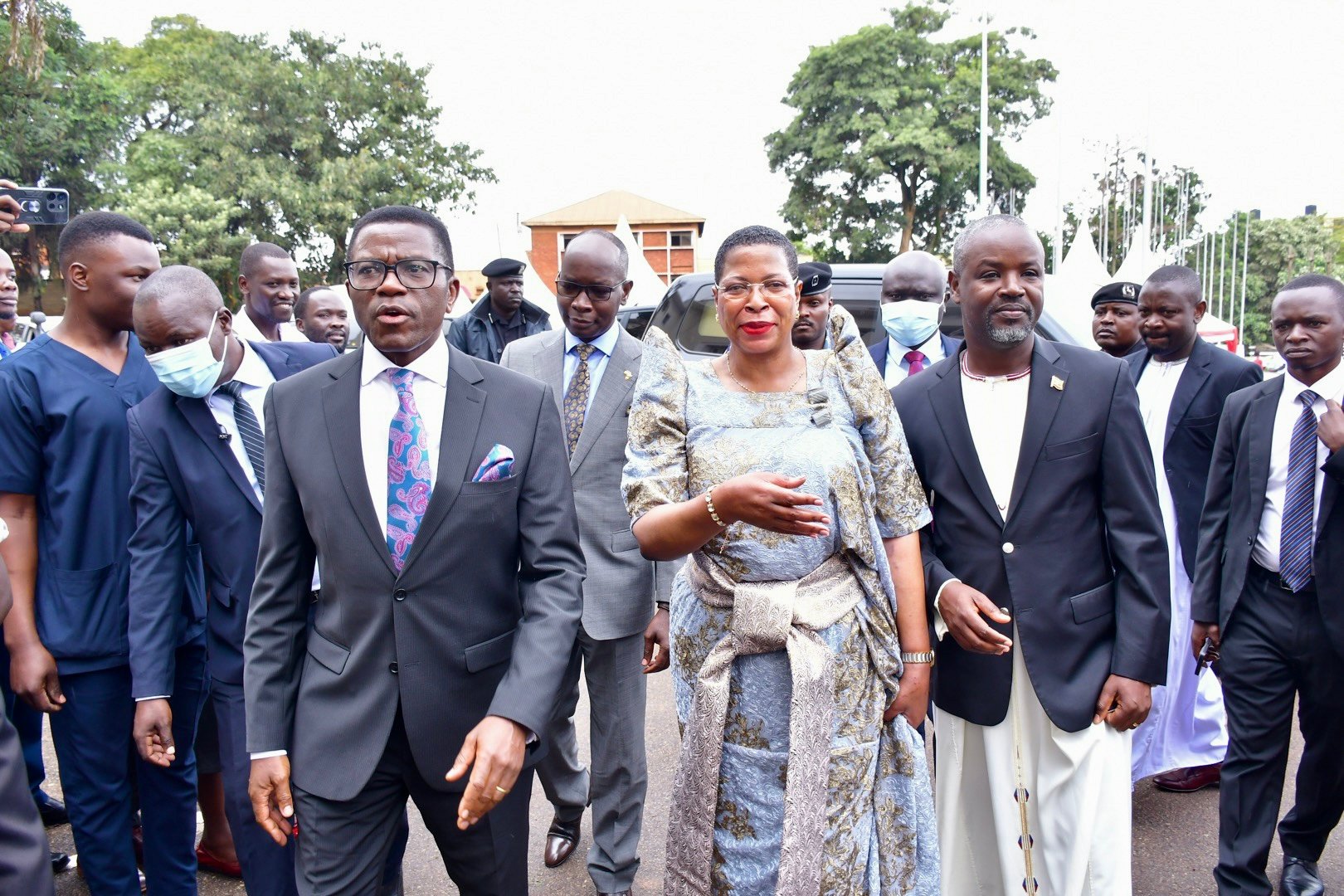Uganda Aids Commission lists tasks ahead for new boss

Dr Ruth Senyonyi, the new Uganda Aids Commission chairperson (left), Dr Nelson Musoba. the Commission’s director general, and Ms Milly Babalanda, the minister for Presidency, during the swearing-in of Dr Senyonyi at the President’s Office on April 9, 2024. PHOTO | ISAAC KASAMANI
What you need to know:
- Last year’s data from UAC shows that 1.4 million Ugandans are living with HIV/Aids. Of these, 6,000 babies were born with the virus, 80,000 are children living with the virus, there are over 50,000 new infections and 17,000 Aids-related deaths.
The new Uganda Aids Commission (UAC) chairperson, Dr Ruth Senyonyi, yesterday assumed office, pledging to renew efforts to combat Aids as a public health threat by 2030.
The former president of Mothers Union replaced Dr Eddie Mukoyo, who served in the position for two terms.
Speaking at the handover yesterday, Dr Senyonyi said she is ready to pick from her predecessor’s efforts in combating the HIV/Aids scourge.
“I have been welcomed greatly and that is very wonderful. I am a professional counsellor and I am ready to work as a team with the group. The funding, the sustainability, all these challenges we have had but we are ready to go,” she said.
UAC was established 32 years ago to coordinate the multi-sectoral response to the HIV/Aids.
The UAC Director General, Dr Nelson Musoba, highlighted new babies’ HIV infections as one of the lingering challenges even with the available technology.
“Our chairperson should know that we are gearing towards closing the tap totally on HIV infections in new-born babies. This is one area of challenge where we still have mothers passing on the virus to new-born babies and yet with the available technology, a mother who is positive and is on treatment is supposed to have a baby that has no virus. That is one of the challenges as the new chairperson comes in,” Dr Musoba said.
Last year’s data from UAC shows that 1.4 million Ugandans are living with HIV/Aids. Of these, 6,000 babies were born with the virus, 80,000 are children living with the virus, there are over 50,000 new infections and 17,000 Aids-related deaths.
He attributed the more than 6,000 new-born babies acquiring the virus at birth to mothers not giving birth in hospitals and that some are still giving birth from home with help of traditional birth attendants.
“The other challenge is that some mothers do not follow instructions given to them by the healthcare providers and if you don’t follow instructions, then you will pass on the virus to the baby,” Dr Musoba said.
Dr Musoba also revealed that the other challenge they are facing is limited communication and information flow since the young people, who have access to information, are catching the virus.
‘‘We see predominantly new infections among young people. They haven’t internalised and realised that this is a problem and yet there is the availability of treatment, something that our new chairperson has to emphasise,’’ Dr Musoba said.
Ms Milly Babalanda, the minister for Presidency, pledged continued support from the government.





